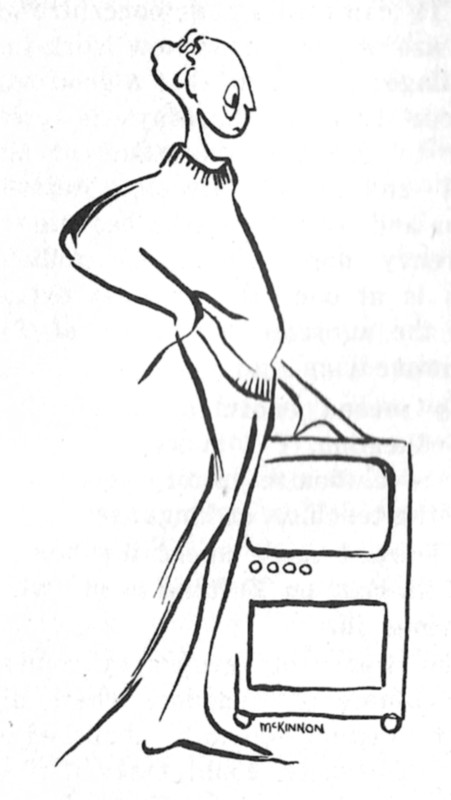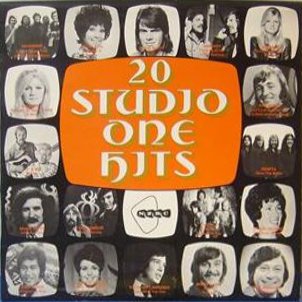Not all in perfect harmony
First published in the New Zealand TV Weekly June 27, 1966.
 TV is an instrument of communication, a means like any other without, in itself, any moral qualities. Give it a personality and you are in the area of those who talk of “the demon drink.” It can be used for good or ill as its sponsors choose, and its sponsors finally are the public; the NZBC soon knows whether it has pleased or offended.
TV is an instrument of communication, a means like any other without, in itself, any moral qualities. Give it a personality and you are in the area of those who talk of “the demon drink.” It can be used for good or ill as its sponsors choose, and its sponsors finally are the public; the NZBC soon knows whether it has pleased or offended.
TV can, of course, be an addiction and a drug, temporarily but totally suspending all other stimuli. This says nothing of the drug, nor does it add anything to remark that the drug is habit-forming. For it to be so is a reflection of and a commentary on the person forming the habit. And if a whole population crouches over nightly before the Telly, taking in everything from the utterly trivial to the slightly better, even to the occasionally sublime, then this is a reflection upon our times and ways, not on TV itself.
Waiting for Godot
In the Greek tragedies, the story is usually propelled by a messenger bearing dire news; Clytemnestra has killed her husband, Oedipus has killed his father. The muscles flex and the mind contorts and the play hurtles forward. The characteristic feature of modern mass-entertainment newspapers, radio, cinema, TV - is that it is all messenger and no action; we don’t move but sit torpid until the next message, what we call “news,” comes along. We wait, as it were, for Godot.
And meanwhile, slowly while we wait, the idea of the separate conscious. self, the determining identity we think of as ourselves, is being systematically destroyed.
This has been done in various ways in this century: by the German Nazis, reducing whole populations to anonymous heaps of bones and teeth; by the Communist inquisitors turning the heretic into a faithful zombie by destroying the old self and substituting a whole new set of allegiances and responses, and with us, by the slow but deadly erosion of gossip, the corrosive sublimate of news which settles on a well-known per sonality until he dissolves in print or the visual images of television.
Cities become villages
This is the negative aspect; this is how we are using television now. But that there are alternatives I now proceed to show.
No one can doubt the immediacy of TV. In an age tending always to larger and larger cities, to wider and wider suburban dispersal, the sense of community should be lost. But TV can turn a huge concentration the size of London or New York into a village; I imagine that a good part of our current Thursdays is given over to animated discussion of Mrs Peel and Steed. Harold Steptoe’s quips and Albert’s quirks become the currency and coinage of millions. This is at once the greatest danger and the supreme advantage of TV: its immediacy and potency.
Its second enormous potential is for education. TV, in its immediacy, can revolutionise history, geography and the teaching of language.
I learned more about the otter in half an hour on TV than in my whole previous life.
The dreary old geography round-the climate of Ecuador, where and what noted for-could be abolished for ever. Television could make it obsolete and I trust soon will. As for history, surely those of us able to see the majestic series on The Great War learned more of it than through a hunded books.
In USA some years ago, ten million people were learning mathematics at 7 a.m.; in Great Britain, an estimated four million learned Spanish and Italian from TV. It can reduce all the drudgery from learning, and in a manner which can transform knowledge from the collection of unrelated facts it so often now is, into a living, organic possession. Moreover, it can educate our senses, at least those of sight and hearing to a degree still undreamed of.
TV and politics
In politics, it is the most immediate of all instruments. The Mayoral and local body elections last year were not so much fought as won on tele- vision; the candidates presented themselves and instantly conveyed their appropriateness for office.
As the most merciless medium for pretension and blarney, it can destroy those who offer them in a trace, and it is worthy of record that Senator McCarthy’s neurotic anti-Communist crusade in USA was at last made ludicrous by its wide television coverage.
But all these potential developments are dependent on a community which will ask for them. The medium must be thought of as something more than time-filling or distraction. One disadvantage in New Zealand is that the NZBC finds it much cheaper to buy packaged overseas programmes than arduously to produce our own. This may change when the new studios are built.
Community responsibility
I hold, therefore, that television in a responsible community can be an enormous educative force and that the power of this force depends wholly on what the public asks of it.
A responsible community will have have responsible TV.
But for this to happen there is one pre-requisite that seems to me vital. I noted recently with disappointment and disquiet that Mr Harold Wilson was sufficiently pained by the BBC’S coverage of the recent election to rumble about revoking or reducing the terms of its Charter. This would be disastrous, I believe.
If TV is to serve us maturely, it must hold to its independence from Government as much as from commercial interests. (That an advertiser can buy only time and not programmes seems to me the most promising aspect of our present arrangements.) I believe that this independence from Government has not yet been fully achieved; I would urge that it be pressed and pushed for by the Corporation with as much urgency as it can muster.
Alternatives
There are thus two alternatives crystallised by television: either we just sit and passively wait for Godot and find out when he comes at last that he will enlist us in some slavery, or we make Godot unnecessary by discovering who we are, what we want and how to get it.


Comments powered by CComment